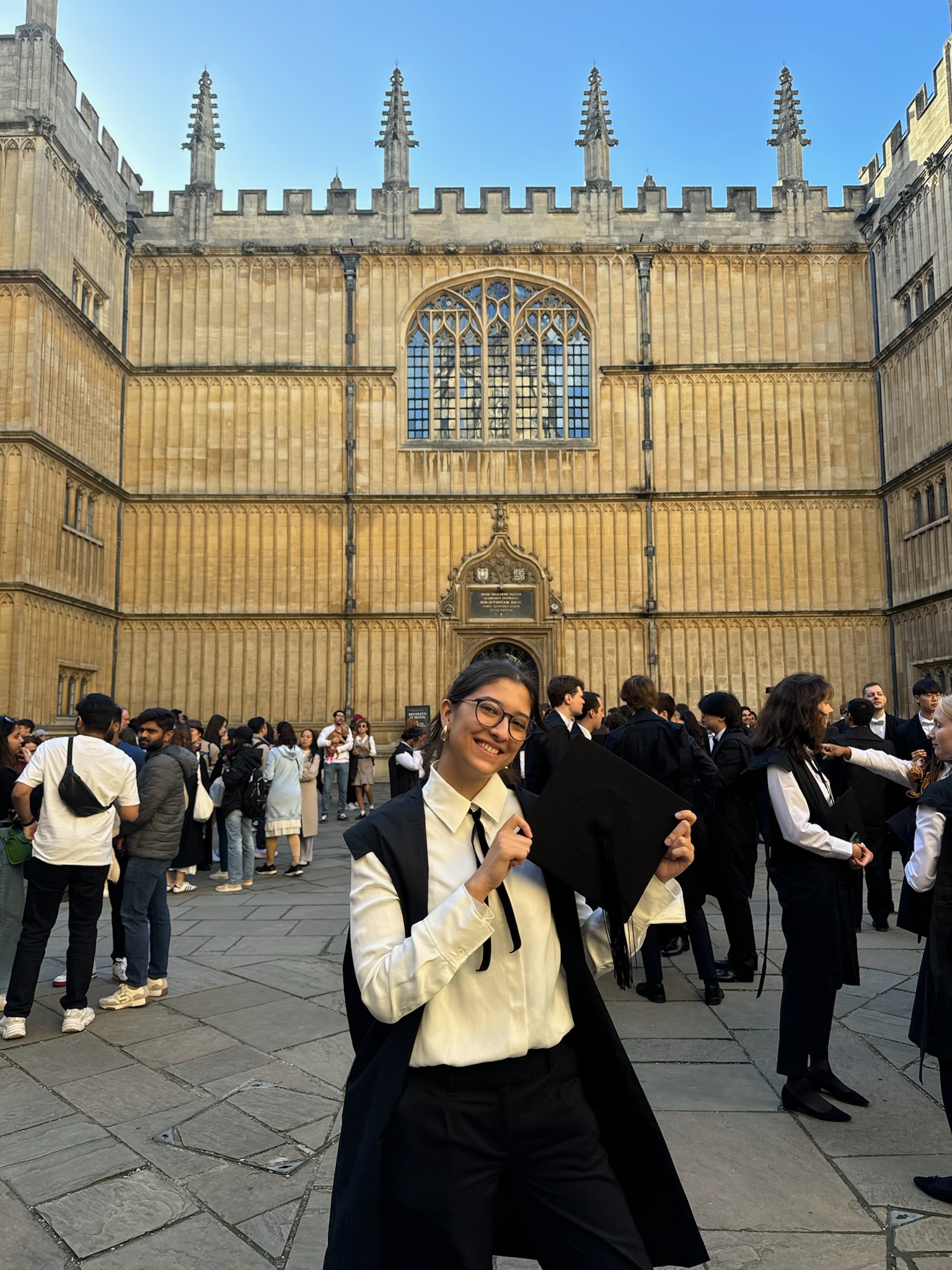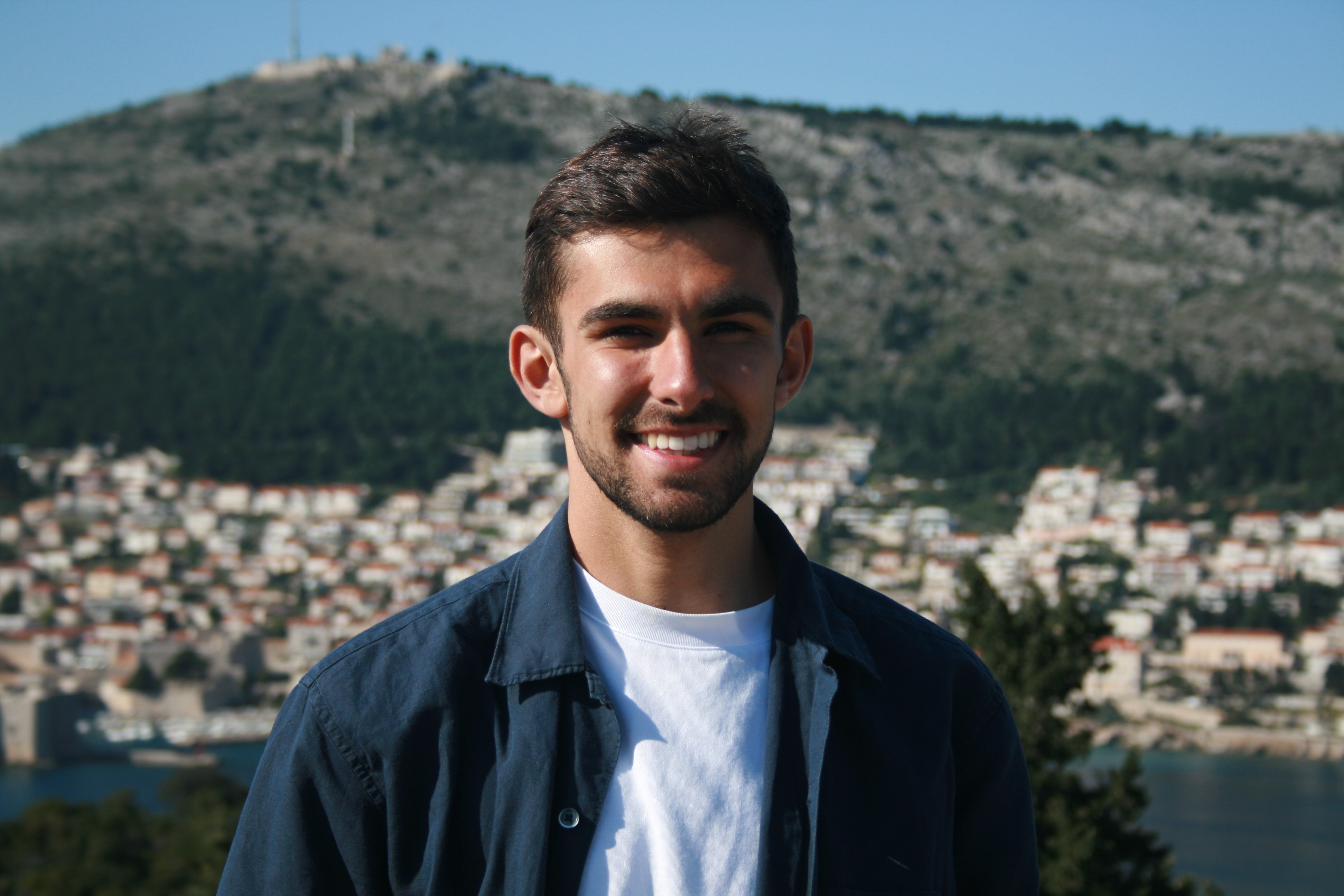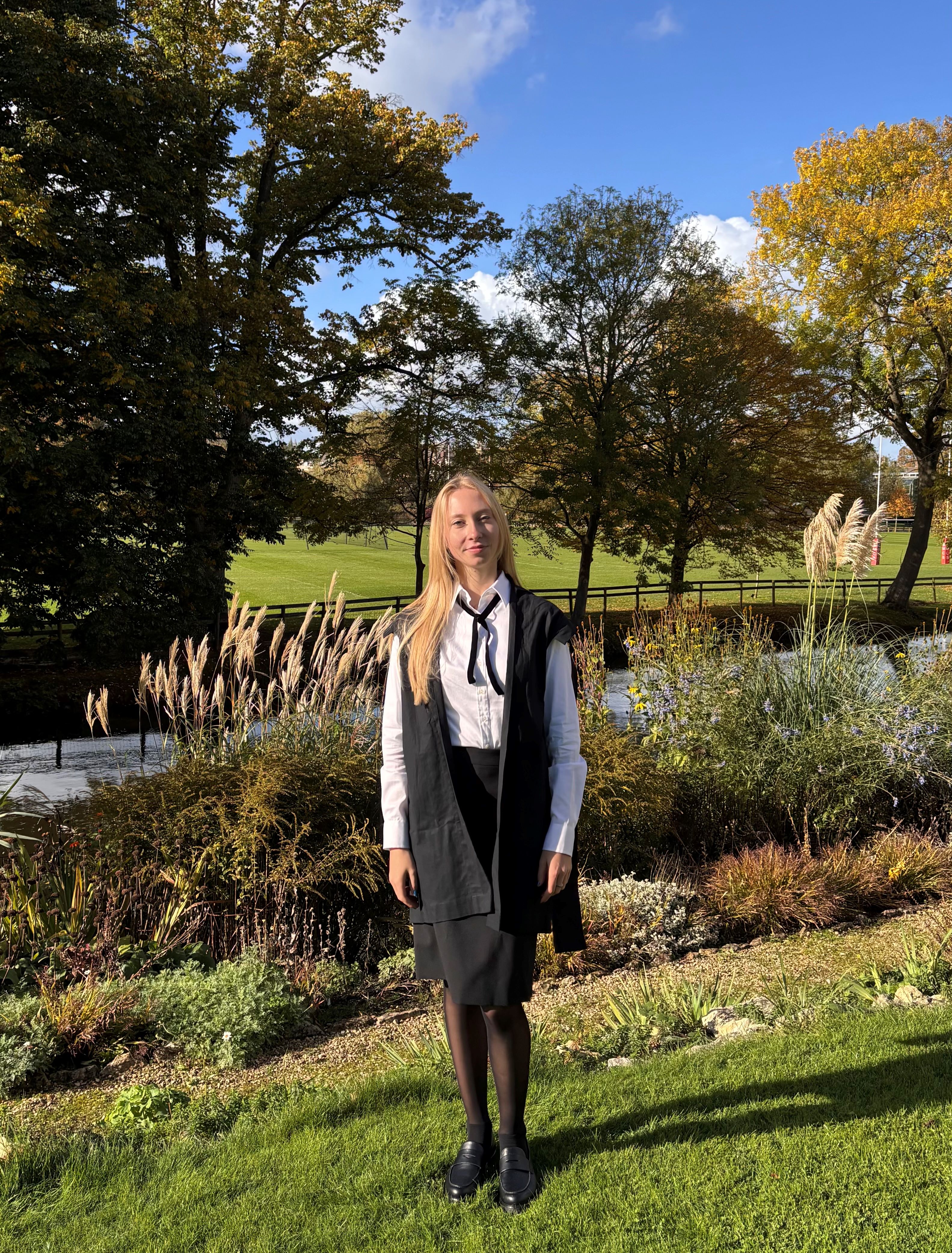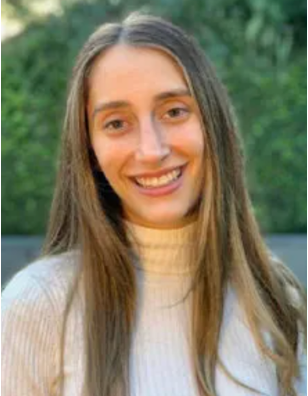MSc Applied Cancer Science - María Hernandez Mustieles
 María began her research journey at the Tecnológico de Monterrey in Mexico, where she obtained a BSc in Biomedical Engineering. Her studies focused on biomedical devices, biosignal processing, and neuroengineering, with a particular interest in brain-computer interfaces, which became the focus of her dissertation project. Wanting to delve deeper into traditional laboratory-based work, María undertook a research placement in the Artzi Lab at Harvard Medical School, where she contributed to the development of nanobiomaterials for drug delivery in various genetic diseases.
María began her research journey at the Tecnológico de Monterrey in Mexico, where she obtained a BSc in Biomedical Engineering. Her studies focused on biomedical devices, biosignal processing, and neuroengineering, with a particular interest in brain-computer interfaces, which became the focus of her dissertation project. Wanting to delve deeper into traditional laboratory-based work, María undertook a research placement in the Artzi Lab at Harvard Medical School, where she contributed to the development of nanobiomaterials for drug delivery in various genetic diseases.
María became interested in the application of biomaterials to cancer therapy and wanted to strengthen her foundational understanding of cancer biology, leading her to apply for the MSc in Applied Cancer Science.
During her studies at Oxford, María carried out a project under the supervision of Prof. Shisong Jiang looking at survivin: a key tumour-associated protein involved in the regulation of cell survival and cell division. Survivin is overexpressed in around 90% of cancers and its function is strongly dependent on its location within the cell. María’s work aimed to map survivin’s subcellular localisation in colorectal, breast, and lung cancer cell lines and to establish experimental protocols for its functional study.
"Through this work, I aimed to elucidate the relationship between survivin localisation and cancer cell phenotype, while providing robust tools for future studies on survivin regulation, post-translational modifications, and transcriptional changes following its downregulation.”
Having completed her master’s, María has now secured a position as a Research Assistant in the Owen Lab at the Ludwig Institute for Cancer Research, University of Oxford.
“I am very excited by this opportunity, as it will allow me to build on my MSc training on translational research by working with patient-derived samples from a clinical trial. It represents an important step forward in my career, bringing me closer to research with direct clinical relevance”
Looking ahead, María will continue her academic research career, hoping to pursue a DPhil and gain experience in clinical trial design and implementation.
"The ACS course at Oxford encouraged me to grow, pushed me to be the best version of myself, and challenged me to think about how my work as a scientist can meaningfully contribute to patients’ health."
MSc Medical Physics with Radiobiology – Jack Johnson
 Jack Johnson studied the MSc in Medical Physics with Radiobiology in 2024-25, following a BSc in Physics at the University of Birmingham. During his undergraduate studies, Jack particularly enjoyed modules related to medical imaging and decided to pursue this further, taking on a role as a Nuclear Medicine Physics Technician at University Hospitals of Leicester NHS Trust. Wanting to deepen his theoretical understanding and get involved in research of his own, Jack came to Oxford as his next step.
Jack Johnson studied the MSc in Medical Physics with Radiobiology in 2024-25, following a BSc in Physics at the University of Birmingham. During his undergraduate studies, Jack particularly enjoyed modules related to medical imaging and decided to pursue this further, taking on a role as a Nuclear Medicine Physics Technician at University Hospitals of Leicester NHS Trust. Wanting to deepen his theoretical understanding and get involved in research of his own, Jack came to Oxford as his next step.
"I was very keen to work with a wide range of expert staff as well as exploring topics in the wider medical sphere, such as in the Translational Research Methods and Applications module."
Jack’s dissertation project was titled "Multimodal Model Fusion Strategies for Automatic Whole Body Tumour Lesion Segmentation in PSMA and FDG PET/CT Imaging”, supervised by Bartek Papiez from the Oxford Big Data Institute, University of Oxford. This work investigated whether fusing deep learning models could improve the automatic delineation of tumours in prostate cancer imaging.
Jack is continuing his journey at Oxford by starting a DPhil in Clinical Medicine focused on large-scale machine learning and analytics of electronic health records, with the goal of advancing hepatitis B and liver-related disease research.
"This course was crucial in providing me the research experience necessary to help secure my DPhil position. It has really been a fantastic year for me, and I would recommend studying here to anyone in a heartbeat!"
MSc in Radiobiology - Carla Spoelder
 Before joining the MSc in Radiobiology at Oxford, Carla completed a BSc in Pharmaceutical Sciences at the University of Utrecht. Through laboratory experience at the University Medical Centre Utrecht with Dr Alex Poot, she developed a strong interest in radiobiology, in particular in the development of theranostics. Seeking to expand her knowledge in this space, Carla applied to the MSc in Radiobiology course.
Before joining the MSc in Radiobiology at Oxford, Carla completed a BSc in Pharmaceutical Sciences at the University of Utrecht. Through laboratory experience at the University Medical Centre Utrecht with Dr Alex Poot, she developed a strong interest in radiobiology, in particular in the development of theranostics. Seeking to expand her knowledge in this space, Carla applied to the MSc in Radiobiology course.
“I was drawn to the course because it offered not only hands-on lab experience but also the opportunity to deepen my understanding of the physics and biology that underpin radiobiology."
During her studies, Carla worked with Prof. Katherine Vallis, looking at DNA damage repair in external beam radiotherapy versus targeted radionuclide therapy. Her project investigated the use of the Biological Effective Dose model for targeted radionuclide therapy (TRT), focusing on the G factor, to determine whether the model accurately estimates the biological effects of TRT.
"What I enjoyed most about the MSc in Radiobiology was learning from lecturers who are experts in their fields and being part of a motivated and supportive student community. The small cohort size made the lectures highly interactive and encouraged in-depth discussions about topics at hand. Overall, the course offered a great balance between lectures, tutorials, and lab work."
Still interested in the theranostics field, Carla is now applying for PhD positions to continue her research journey in this area.
MSc in Precision Cancer Medicine - Yael Lefkovits
 Yael began her medical education at the University of Cambridge, where she completed a Bachelor of Medical Sciences (Honours), before commencing advanced training in medical oncology at St Vincent's Hospital in Melbourne. During her studies, she developed a strong interest in innovative therapeutics and precision healthcare, which have since become the focus of her clinical and research work. Yael was drawn to the MSc in Precision Cancer Medicine for its unique multidisciplinary curriculum, covering broad aspects of cutting-edge immuno-oncology, genomics, diagnostics, experimental therapeutics, bioinformatics, and translational and clinical research methodologies.
Yael began her medical education at the University of Cambridge, where she completed a Bachelor of Medical Sciences (Honours), before commencing advanced training in medical oncology at St Vincent's Hospital in Melbourne. During her studies, she developed a strong interest in innovative therapeutics and precision healthcare, which have since become the focus of her clinical and research work. Yael was drawn to the MSc in Precision Cancer Medicine for its unique multidisciplinary curriculum, covering broad aspects of cutting-edge immuno-oncology, genomics, diagnostics, experimental therapeutics, bioinformatics, and translational and clinical research methodologies.
"I was fortunate to be the recipient of the Ramsay Postgraduate Scholarship in Australia, providing me with the opportunity to complete my studies at Oxford."
Yael's dissertation project, supervised by Prof. Mark Middleton, focused on tumour agnostic applications of BRAF inhibitors in non-melanomatous, solid organ cancers. BRAF inhibitors are well established in the treatment of advanced or metastatic melanoma, where they have demonstrated significant efficacy in combination with MEK inhibitors. However, while BRAF mutations occur across a range of malignancies, evidence for the role of BRAF inhibitors in non-melanomatous cancers has been less clear. Yael conducted a systematic review evaluating the safety and efficacy of BRAF-targeted therapies, both as monotherapy and in combination with other targeted therapies, in BRAF-mutated, non-melanomatous solid tumours.
Yael will continue her clinical journey, completing her medical oncology fellowship. She hopes to use her master’s as a springboard into a PhD in health technology and precision cancer medicine.
“The MSc in Precision Cancer Medicine was a transformative experience — it deepened my understanding of translational research and the molecular principles shaping modern oncology. The opportunity to learn from leading academics and clinicians at Oxford was invaluable, and receiving the course prize is a real honour. I would strongly recommend the programme to anyone interested in the future of personalised cancer care.”


